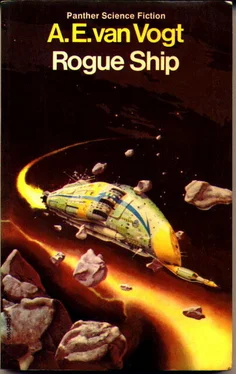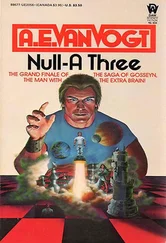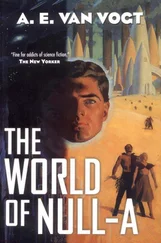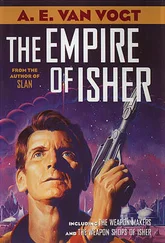A. Van Vogt - Rogue Ship
Здесь есть возможность читать онлайн «A. Van Vogt - Rogue Ship» весь текст электронной книги совершенно бесплатно (целиком полную версию без сокращений). В некоторых случаях можно слушать аудио, скачать через торрент в формате fb2 и присутствует краткое содержание. Жанр: Фантастика и фэнтези, на английском языке. Описание произведения, (предисловие) а так же отзывы посетителей доступны на портале библиотеки ЛибКат.
- Название:Rogue Ship
- Автор:
- Жанр:
- Год:неизвестен
- ISBN:нет данных
- Рейтинг книги:4 / 5. Голосов: 1
-
Избранное:Добавить в избранное
- Отзывы:
-
Ваша оценка:
- 80
- 1
- 2
- 3
- 4
- 5
Rogue Ship: краткое содержание, описание и аннотация
Предлагаем к чтению аннотацию, описание, краткое содержание или предисловие (зависит от того, что написал сам автор книги «Rogue Ship»). Если вы не нашли необходимую информацию о книге — напишите в комментариях, мы постараемся отыскать её.
Rogue Ship — читать онлайн бесплатно полную книгу (весь текст) целиком
Ниже представлен текст книги, разбитый по страницам. Система сохранения места последней прочитанной страницы, позволяет с удобством читать онлайн бесплатно книгу «Rogue Ship», без необходимости каждый раз заново искать на чём Вы остановились. Поставьте закладку, и сможете в любой момент перейти на страницу, на которой закончили чтение.
Интервал:
Закладка:
'I might as well face the truth,' he thought. 'I can't take the chance of returning to Earth.'
As he planned it then, he would have Lesbee slow the ship to a point where it would require thirty years to get to the solar system. Then, when he had worked out a good propaganda reason for doing so, he would execute Lesbee, Miller, Mindel, and the other real suspects. The reason, of course, would be basically that they were plotting to take over the ship, but the details needed to be carefully thought about so that people would either believe the story or at least be half-inclined to believe it.
He was still lying there an hour later, considering exactly what he would do and say when, under him, the ship jumped as if it had been struck. There followed the unmistakable sensation of acceleration.
Lesbee had been tensely awake as the fateful hour approached. On the dot the forward surge caught him and pressed him back against the belt that partly encased his body. According to his programming, the preliminary gap between acceleration and artificial gravity would be three g's, enough to hold everyone down until they crossed light-speed.
He felt a sickening fear as he realized that at this very instant time and space must already be telescoping at an astronomical rate.
'Hurry, hurry!' he thought weakly.
Although there was no way of sensing it that he knew of, since both acceleration and artificial gravity were increasing together, he braced himself for the fantastically compressed period light-inches before and beyond light-speed. His hope was that it would pass by in a tiny fraction of an instant.
The bracing action was like a signal. As he lay there, expecting agony, he had a fantasy that was gone so quickly that he forgot what it was. Then another fantasy, a face – never seen before – instantly gone. Then he began to see images. They were all going backward: himself and other people aboard, actually walking backward as on a film in reverse. The scenes were fleeting; thousands streamed by and, presently, there were images from his childhood.
The pictures faded into confusion. He was aware of a floating sensation, not pleasant, but not the agony he had expected. And then -
He must have blacked out.
22
Averill Hewitt hung up the phone, and repeated aloud the message he had just been given: 'Your spaceship, Hope of Man, is entering the atmosphere of Earth.'
The words echoed and re-echoed in his mind, a discordant repetition. He staggered to a couch and lay down.
Other words began to join the whirlpool of meaning and implication that was the original message: After six years... the Hope of Man... after six years, when by even his minimum estimates he had pictured it a good fifth of the way to the Centaurus suns... re-entering the atmosphere of Earth...
Lying there Hewitt thought: 'And for ten years I've accepted Astronomer John Lesbee's theory that our sun is due to show some of the characteristics of a Cepheid Variable – within months now!'
Worse, he had spent the greater part of his huge, inherited fortune to build the giant vessel. The world had ridiculed the West's richest sucker; Joan had left him, taking the children; and only the vast, interstellar colonizing plan had finally won him government support for the journey itself -
All that was now totally nullified by the return of the Hope of Man, on the eve of the very disaster it had been built to avoid.
Hewitt thought hopelessly, 'What could have made John Lesbee turn back-?'
His bitter reverie ended, as the phone began to ring. He climbed off the couch, and as he went to answer, he thought, 'I'll have to go aboard and try to persuade them. As soon as they land, I'll-'
This time, his caller was an official of the Space Patrol. Hewitt listened, trying to grasp the picture the other was presenting. It had proved impossible to communicate with those aboard.
'We've had men in space suits at all the observation ports, Mr. Hewitt, and on the bridge. Naturally, they couldn't see in, since it's one-way-vision material. But they pounded on the metal for well over an hour, and received no response.'
Hewitt hesitated. He had no real comment to make, but said finally, 'How fast is the ship going?'
'It's overtaking the earth at about a thousand miles an hour.'
Hewitt scarcely heard the reply. His mind was working faster now. He said, 'I authorize all expense necessary to get inside. I'll be there myself in an hour.'
As he headed for his private ship, he was thinking, 'If I can get inside, I'll talk to them. I'll convince them. I'll force them to go back.'
He felt remorseless. It seemed to him that for the first time in the history of the human race, any means of compulsion was justified.
Two hours later, he said, 'You mean, the airlock won't open?'
He said it incredulously, while standing inside the rescue ship, Molly D, watching a huge magnet try to unscrew one of the hatches of the Hope of Man. Reluctantly, Hewitt drew his restless mind from his own private purposes.
He felt impatient, unwilling to accept the need to adjust to the possibility that there had been trouble aboard. He said urgently, 'Keep trying! It's obviously stuck. That lock was made to open easily and quickly.'
He was aware that the others had let him take control of rescue operations. In a way, it was natural enough. The Molly D was a commercial salvage vessel, which had been commandeered by the Space Patrol. Now that Hewitt was aboard, the representative of the patrol, Lieutenant Commander Mardonell, had assumed the role of observer. And the permanent captain of the vessel took instructions, as a matter of course, from the man paying the bills.
More than an hour later, the giant magnet had turned the round lock-door just a little over one foot. Pale, tense, and astounded, Hewitt held counsel with the two officers.
The altimeter of the Molly D showed ninety-one miles. Lieutenant Commander Mardonell made the decisive comment about that: 'We've come down about nine miles in sixty-eighty minutes. Since we're going forward as well as down, we'll strike the surface on a slant in ten hours.'
It was evident that it would take much longer than that to unscrew the thirty-five feet of thread on the lock-door, at one foot per hour.
Hewitt considered the situation angrily. He still thought of this whole boarding problem as a minor affair, as an irritation. 'We'll have to burn in or use a big drill,' he said. 'Cut through the wall.'
He radioed for one to be sent ahead. But even with the full authority of the Space Patrol behind him, two and a half hours went by before it was in position, Hewitt gave the order to start the powerful drill motor. He left instructions: 'Call me when we're about to penetrate.'
He had been progressively aware of exhaustion, as much mental as physical. He retreated to one of the ship's bunks and lay down.
He slept tensely, expecting to be called any moment. He turned and twisted, and, during his wakeful periods, his mind was wholly on the problem of what he would do when he got inside the ship.
He awoke suddenly and saw by his watch that more than five hours had gone by. He dressed with a sense of disaster. He was met by Mardonell. The Space Patrol officer said, 'I didn't call you, Mr. Hewitt, because when it became apparent that we weren't going to get in, I contacted my headquarters. As a result we've been getting advice from some of the world's greatest scientists.' The man was quite pale, as he finished. 'I'm afraid it's no use. All the advice in the world hasn't helped that drill, and cutting torches did no good.'
'What do you mean?'
'Better go take a look.'
The drill was still turning as Hewitt approached. He ordered it shut off, and examined the metal wall of the Hope of Man. It had been penetrated – he measured it – to a depth of three quarters of a millimeter.
Читать дальшеИнтервал:
Закладка:
Похожие книги на «Rogue Ship»
Представляем Вашему вниманию похожие книги на «Rogue Ship» списком для выбора. Мы отобрали схожую по названию и смыслу литературу в надежде предоставить читателям больше вариантов отыскать новые, интересные, ещё непрочитанные произведения.
Обсуждение, отзывы о книге «Rogue Ship» и просто собственные мнения читателей. Оставьте ваши комментарии, напишите, что Вы думаете о произведении, его смысле или главных героях. Укажите что конкретно понравилось, а что нет, и почему Вы так считаете.











